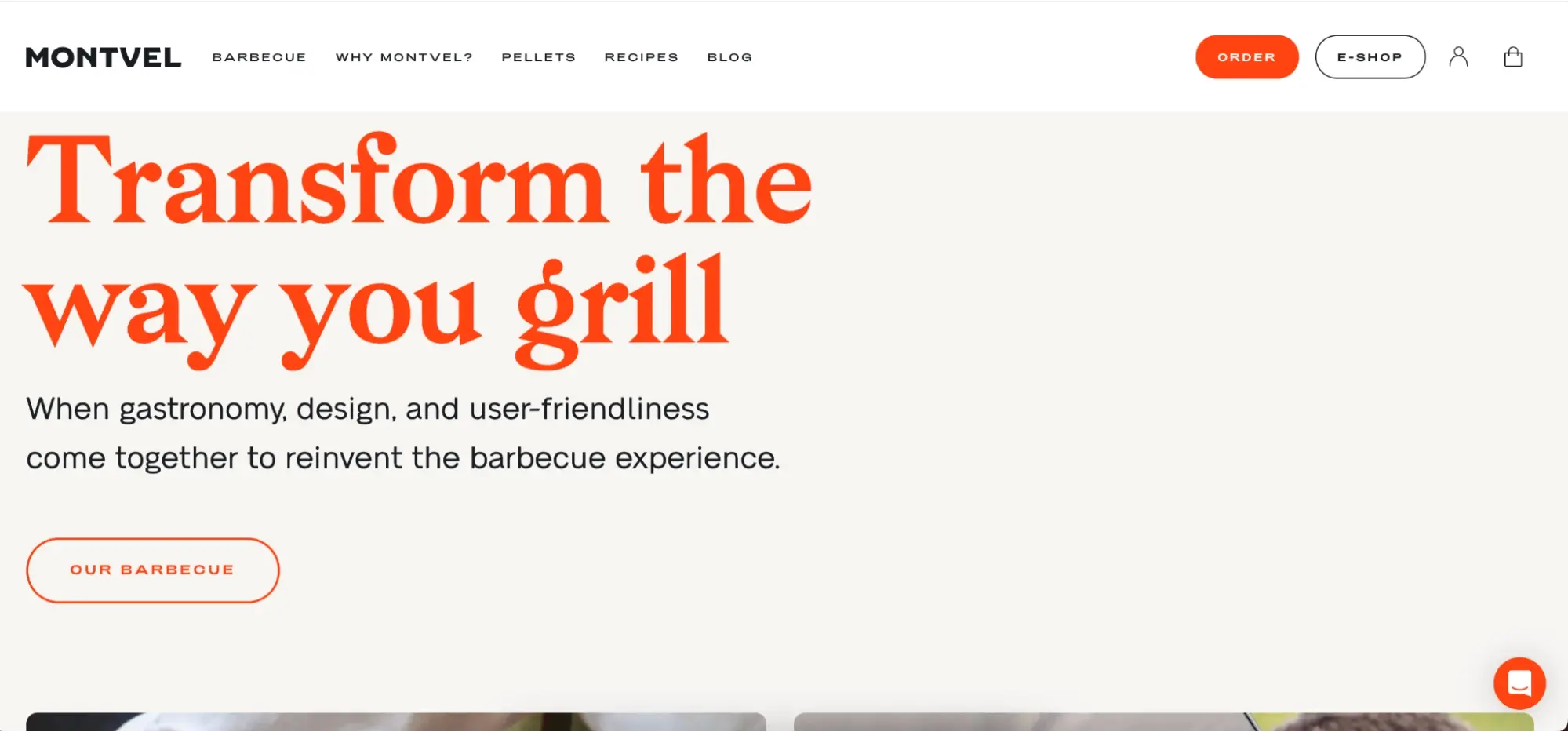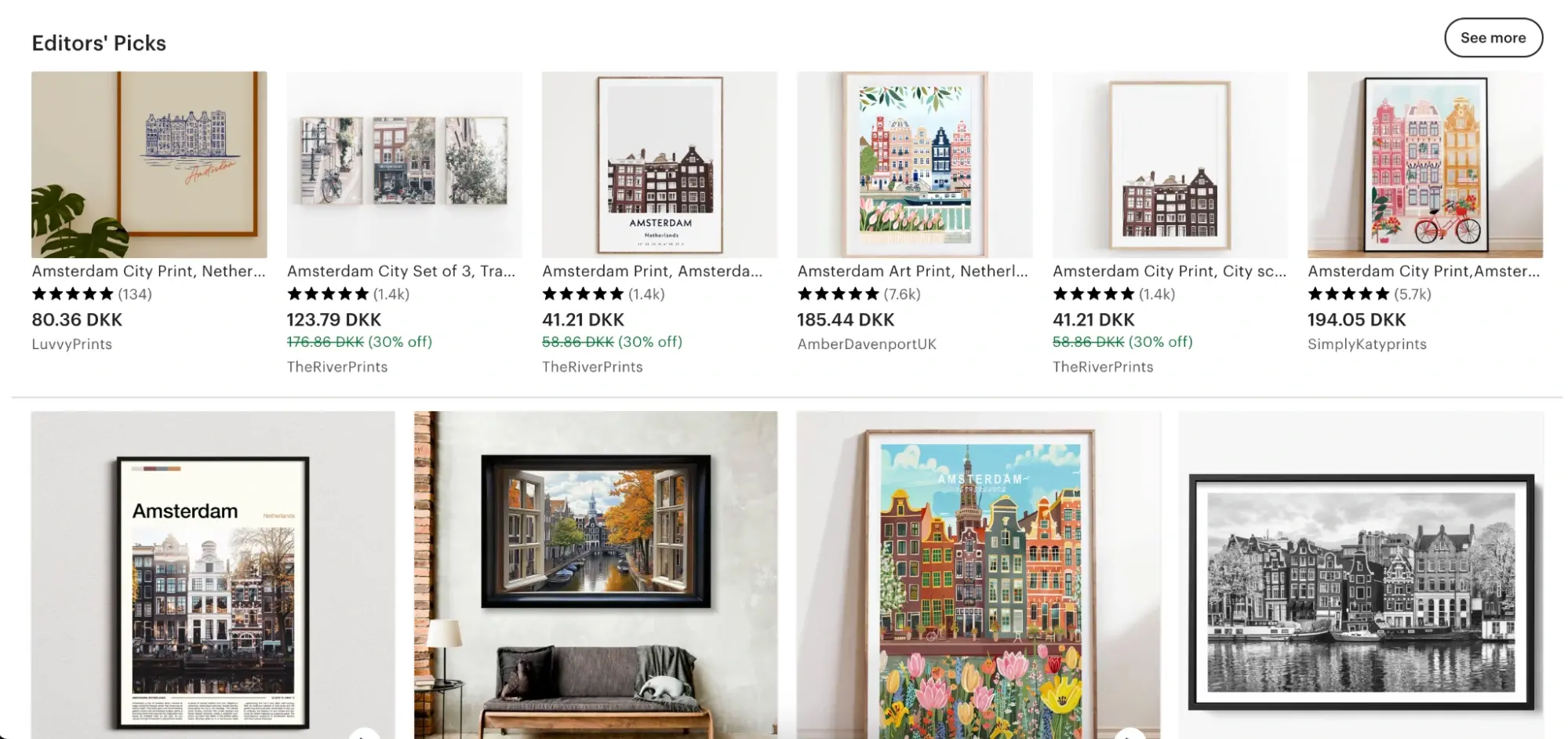When selling your own products online, picking the right platform is a crucial starting point. You have the option to sell from the many marketplaces available, but some business owners may prefer to create their own websites.
Each has benefits and disadvantages. The two platforms differ significantly in terms of user-friendliness and scalability, and you need to think about the level of competition as well. You can always start with one before switching to the other, but if you’re serious about growing a business, it’s a good idea to use the one that’ll help you scale.
Since you have so many options, it’s completely normal if you don’t know where to start. Fear not, though, because we’ll help you make the right choice today. Keep reading to discover which is a better choice between starting your own website or selling on marketplaces. We’ll compare both in multiple categories.
Scalability
Websites
Scalable in the long run
Can take time to set up, but will generate sales more easily
You fully own your platform
Marketplaces
Lacking the scalability needed to build a unique brand
Easy set-up but often higher fees and lower bandwidth
You use someone else’s platform and risk a sudden ban
When building an eCommerce brand, you need to think about how you’ll scale your business in the future. The platform from which you sell your products will make a huge difference in this respect.
Websites
Websites are significantly more scalable than online marketplaces. While more time-consuming, you have complete control over how you sell your products. Once you’ve made a name for yourself, it’ll become much easier for people to visit your site directly.
You can also scale multiple aspects, such as your website design, to keep generating revenue in the long run. If you’re serious about building a long-term brand, making your own website is the best option.

Marketplaces
Marketplaces are a good way to get started with making money online. You can sell products in a more comfortable environment; you don’t need to worry about learning how to make a website from scratch. While this means you can get started more quickly, scaling can also become challenging.
As you sell more products on marketplaces, you’ll encounter constraints. For example, you may have to contend with high fees that significantly impact your profits. Moreover, you’ll be driving traffic to another platform instead of your own.
Winner: Website
Customization
Websites
Full-scale customization, especially with WordPress
Choose your own hosting
Several plugins and themes
Marketplaces
Limited customization in most cases
Mostly reliant on another platform’s hosting, but you can sometimes choose
Often few to no plugins and themes
Customization is vital when creating your brand, and it’s something you should strongly consider your options before setting everything up.
Marketplaces
One of the main trade-offs you make when using a marketplace is that you have very limited customization. You can tweak your profile and its description, along with the copy you use for listed products. While some platforms let you choose your own colors, this is not the case for all of them.
You typically can’t change the layout too much, which can be frustrating if you want to make a unique look. When it comes to brand-building, you often strengthen the platform’s brand rather than your own.
Websites
Websites, on the other hand, are infinitely more customizable – especially if you create an eCommerce website with WordPress. You can pick your own hosting, allowing you to choose a tool with free migrations, SSL certificates, and high-quality customer support.

With plugins and themes, you can completely choose how you want your site to look. For example, you can select premium themes to improve your branding and design. Moreover, you can add widgets and other cool elements – along with finetuning your security settings.
When creating your own site, it’s worth understanding the different types of web design. That way, you’ll be able to build something that converts customers.
Winner: Website
Beginner-Friendliness
Websites
Requires more technical expertise, but not necessarily difficult
Will require multiple steps
Learning curve will lead to better growth in the long run
Marketplaces
Normally low to no-code
Typically can sign up and start selling
Your skills are capped with marketplaces
Starting a new business is daunting at the best of times, but taking action can be difficult if you feel like the mountain you’re trying to climb is too high. So, it’s worth thinking about beginner-friendliness – though you’ll need to also consider long-term growth.

Marketplaces
Marketplaces are typically more beginner-friendly than websites. You just need to sign up, create a profile, and list your products. While you’re still responsible for marketing, you at least won’t have to spend time building a website.
Once you’re comfortable using marketplaces and you’ve learned about the basics of web design, you can then move on to creating your own site. Later, you can redesign your WordPress site if needed.
Websites
Creating a website requires a bit more expertise, but it’s not as difficult as it seems. These days, many themes will do the heavy lifting for you. All you need to do is replace each element with your own text and visuals.
Marketplaces are easier to begin with, but websites are still a better choice in the long run.
Winner: Marketplaces
Cost-Effectiveness
Websites
Upfront costs, but can be surprisingly cost-effective
Better control over fees, which can lead to lower long-term expenses
No listing fees
Marketplaces
Often no upfront cost, but you will have to pay with limited customization and other drawbacks
Fees vary but can be higher than running your own site
Some marketplaces may have a listing fee
Cost-effectiveness can make a big difference when setting up your website. You’ll want to ensure that you spend your money wisely, but at the same time, it’s a good idea to balance this with
Marketplaces
Marketplace fees vary. You’ll almost always need to pay a fee when you sell your items, and some platforms – such as Etsy – will require a payment to list your products. Depending on the one you choose, you may have to deal with exchange rates that don’t reflect the reality of the market.
Websites
Websites typically have ongoing maintenance fees, as well as startup costs. You’ll need to pay for:
Hosting: This can be quite affordable (you can start from $2.99/mo with Verpex, for example).
Website Themes: You can use free themes, but a paid one offers more customization and better responsiveness. Expect to pay around $100 for a good theme; some are one-time purchases, whereas others are annual.
Plugins: Many plugins are free, but it’s worth investing in premium plugins for important aspects like site security.
Websites are still more affordable to set up than you think, though. Since cost-effectiveness relies on so many factors, this section is a tie.
Winner: Tie
Security
Security is one of the most fundamental eCommerce aspects, and a breach can seriously damage your reputation. So, you should take this very seriously.
Websites
Responsible for your own security
Full control over security procedures
Marketplaces
Security is normally handled for you
Limits on how much security you can implement
Websites
With your own website, you can control your security procedures. You have the option to choose which plugins you add and whether you want to take a firmer approach.
If you approach website security the right way, you can have something very powerful. This is particularly true if you use quality plugins and hosting that takes this seriously. You can use a website security checklist to ensure you cover everything.
Marketplaces
You don’t need to worry about customizing security with marketplaces. This is done on the backend, meaning that you can focus on selling your products.
The drawback of marketplaces, however, is that you can’t customize your security. Moreover, platforms aren’t immune to security breaches. You’ll need to implement multi-factor authentication and other procedures, too.
Winner: Tie
Traffic Generation
Without traffic, you can’t generate sales. However, you need to think about the long-term when building a business.
Websites
You own your traffic
Customize your site for SEO
People visit your site to see your services
Marketplaces
Little to no control over traffic
Reliant on the marketplace for promotion much of the time
You’re competing with several other businesses for attention
Websites
You own the traffic you generate for your website. You can use a mixture of search engine optimization (SEO) social media, and paid advertising to generate site visitors. Once you’re established, you’ll have a steady stream of people visiting and therefore a good level of income with the right strategy.
It’s true that building site traffic will take time, unless you already have an established brand elsewhere. However, the rewards are significant compared to marketplaces.

Marketplaces
Marketplaces sometimes help you promote your products and services. For example, they may feature you in their social media stories or on their website homepage.
However, you often have to compete with numerous other people for attention on marketplaces. Moreover, someone visiting your page might not be looking for what you offer.
Winner: Websites
Competition
Regardless of the space you get into, you will find eCommerce highly competitive. So, it’s always nice if you can do things that stop you from having to deal with even bigger amounts.
Websites
Competition in search engines
You can nurture your audience when they visit your site
Marketplaces
Competing with others on marketplaces
You’re still competing with others even after generating a lead
Websites
When making your own website, you’ll still have competition in search engines and on social media. But once a user has clicked through, you have their full attention and more control to convert them into a paying customer. So, the competition is overall lower.
Marketplaces
Despite being easy to set up, marketplaces are fiercely competitive. You’re competing with thousands of other sellers, and standing out can be incredibly difficult. Because the barrier to entry is lower, more people will choose the same route.
Winner: Website
Summary
You have plenty of ways to sell your products online these days, and choosing between your own website and a marketplace is important. Generally speaking, you have a much better chance of building a long-term brand if you make your own site. While more challenging, you have better customization as well. Furthermore, you’ll learn lots of skills that’ll make you a competitive entrepreneur.
Frequently Asked Questions
Would a hybrid approach work?
A hybrid approach could work, depending on the items you sell. If you have a mixture of digital and physical products, you may want to consider making a website and also using marketplaces. However, it will be significantly more time-consuming.
How can I drive traffic to my website?
You can drive traffic to your site through SEO, word-of-mouth, and social media. For quicker results, you can add paid search to the mix.
What should I look for when picking a marketplace?
Consider the fees for any marketplace you use, whether those relate to listing items or transactions. You should also ensure that your marketplace has the features you want, along with high-level security.

Danny is a seasoned freelance copywriter with 10+ years of managing his own websites in WordPress and other content management systems. He's an expert in eCommerce and sells his own photography prints, in addition to knowing about hosting domains having used several providers. Danny's strong writing expertise is evident in his bylines across several major tech publications, including Lifewire, MUO, and Make Tech Easier.
View all posts by Danny Maiorca



















